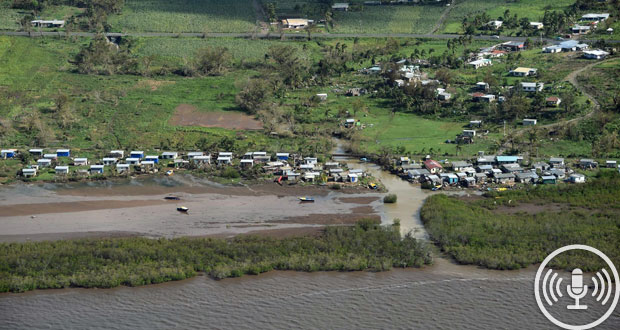UPDATE: A University of New South Wales public health expert said that, as a result of the cyclone's direct and indirect damage, Fijians are most at risk of food poisoning, dengue fever and mosquito-borne illnesses.
“Many Fijians have lost absolutely everything as a result of this devastating natural disaster, and won’t be in a position to rebuild their homes, tipping them into long term poverty,” said the Fiji-based Dr Graham Roberts, senior visiting fellow at UNSW’s School of Public Health and Community Medicine.
“With staple food crops such as cassava and taro likely to have been ruined by the cyclone, food security will become an issue. Fiji will likely have to rely on food relief for some time.
Dr Roberts said food poisoning is a potential and more immediate public health issue, with past natural disasters in the country seeing thawed food being refrozen and then sold to local residents.
“We are also likely to see a rise in dengue fever and other mosquito-borne diseases in the local population in the wake of the cyclone,” he said.
“While the resilient nature and financial support from families overseas will help Fijians deal with this crisis, we must see significant international aid committed to help Fiji to fully recover from this significant disaster.”
Aid agencies fear there could be widespread disease outbreaks in cyclone ravaged Fiji with clean water supplies cut off and thousands left homeless.
CARE Australia spokeswoman Sarah Boxall says thousands of people are sheltering in overcrowded evacuation centres and are at increased risk of diarrhoea from water-borne contamination and typhoid and dengue.
"It really is a race against time to get immediate relief to those who have lost everything and ensure families can stay safe and healthy," she said.
Meanwhile, a RAAF Globemaster carrying urgent humanitarian supplies and personnel has touched down overnight in Fiji.
Four helicopters which will help carry out disaster assessments are also on their way and a RAAF Orion surveillance aircraft is on standby.
An aeromedical evacuation team of six health workers will provide lifesaving support in remote outer islands hardest hit, Foreign Minister Julie Bishop said in a statement on Tuesday.
Click below to hear more from Boxall.
Do you have an idea for a story?Email [email protected]
 Aged Care Insite Australia's number one aged care news source
Aged Care Insite Australia's number one aged care news source

